Ali Larijani, a conservative politician known for his opposition to reformists during Mohammad Khatami's presidency, has registered for the Iranian presidential election for the third time.
During Khatami's presidency, Larijani played a significant role in airing programs "Identity" and "Light" on state TV, which were instrumental in exerting pressure on writers, intellectuals, and developmental politicians.
Before Mohammad Mokhber, the first deputy to Ebrahim Raisi, referred to himself as a "coolie," both Ali Larijani and his brother Mohammad Javad had used this term to describe themselves.
Despite his disqualification in the 2021 elections, Larijani has decided to try his chances once again.
Larijani's potential presidency raises questions about his alignment with Ali Khamenei's vision. If Larijani becomes president and continues to advocate for developmentalism and slogans not supported by Khamenei, he risks facing a fate similar to that of Hassan Rouhani, who was eventually sidelined with the leader's disapproval.
However, Larijani is known for being less forthright than Rouhani and may avoid openly criticizing the leadership to maintain his position.
The base of Larijani's supporters remains unclear.
The reformist front has stated that it will back a dedicated candidate, indicating that Larijani is unlikely to receive the same level of support from reformists that Hassan Rouhani did in 2013.
This lack of support from the reformists further complicates Larijani's path to the presidency.
In the 2000s, Ali and Mohammad Javad Larijani, recalling a dream their father had where his sons, jokingly referred to themselves as the "coolies of the system" of the Islamic Republic.
Ali Larijani wrote in his memoirs that this dream often came to mind when he returned home late at night during his tenure as head of the Islamic Republic of Iran Broadcasting (IRIB), a position he held for ten years under Khamenei’s decree.
He later served as the Secretary of the Supreme National Security Council under President Mahmoud Ahmadinejad.
However, in recent years, the Larijani brothers have refrained from mentioning this memory, possibly due to the changing political environment and the potential negative repercussions in the public and virtual spheres.
Larijani got 1.7 million votes in the 2005 presidential election, which can be considered his personal vote base.
During this election, he was introduced as a candidate by the Fundamentalist Coordination Council, supported by Ali Akbar Natiq Nouri.
However, other fundamentalist candidates did not align with this decision.
Ultimately, the influential Islamic Revolutionary Guard Corps (IRGC) gave their support to Mahmoud Ahmadinejad.
Larijani's campaign slogans, "State of Hope" and "Fresh Air," did not resonate with fundamentalists, reformists, or the general public, resulting in him finishing sixth out of seven candidates.
After this, he served as the Secretary of the Supreme National Security Council but resigned due to rivalries with President Ahmadinejad, who marginalized Larijani in key negotiations, such as those with European governments on the nuclear issue.
Larijani then became the Speaker of the Parliament for three terms, setting a record in the history of the Islamic Republic.
In 2021, he entered the presidential race for the second time with a unique advertising campaign and a strong presence on social media.
However, it appeared that the government had predetermined the election's outcome, leading to Larijani's disqualification.
Sadegh Amoli Larijani's relative, Hossein Jafarzadeh, revealed that Mohammad Hassan Sadeghi Moghadam raised concerns about Larijani's daughter's foreign citizenship during the Guardian Council's discussions.
Sadegh Larijani contacted the Ministry of Intelligence to refute these claims, but the Guardian Council still disqualified his brother.
Ali Khamenei offered a terse consolation, acknowledging "persecution and cruelty" towards some disqualified candidates and mentioning "compensation," but the Guardian Council maintained that "some false reports" did not influence their final decision.
Subsequently, letters between the Guardian Council and Ali Larijani, including his response, were published.
In Ali Larijani's letter regarding his disqualification, he mentioned his political stances and actions during various critical periods, such as the 2009 protests and his support for rejected parliamentary candidates.
While these were anticipated reasons for his disqualification, the Guardian Council also cited his approval of the 2015 nuclear deal as a factor.
Larijani described the current political environment as undergoing "purification."
For years, he has sought to emulate Akbar Hashemi Rafsanjani, positioning himself as a figure above political factions and aiming to wield influence regardless of official titles.
This strategy mirrors Rafsanjani's attempt to maintain political relevance and influence without holding the presidency.
In the 2021 election, Larijani failed to galvanize a significant movement following his disqualification.
His base of supporters remains unclear, and the reformist front has declared its intention to support specific candidates, complicating Larijani's efforts.
Mohammad Khatami has currently endorsed Mohammed Sadr, though Sadr's qualifications are uncertain.
In this context, parties associated with Hassan Rouhani might lend their support to Larijani.
Khamenei's previous comments about the need to "compensate" for Larijani's disqualification provide a glimmer of hope for his supporters, suggesting the possibility of his qualification being restored.
However, these remarks could also be seen merely as a form of consolation without guaranteeing a change in Larijani's status.
If Khamenei decides to shift the political atmosphere, he could influence the approval of Larijani's candidacy, marking a significant departure from previous decisions.
Yet, Larijani's past, particularly his role during Mohammad Khatami's presidency, poses a challenge.
Public opinion still remembers the controversial "Identity" and "Light" programs. "Identity" was linked to the serial murders and elimination of intellectuals, while "Light" targeted and discredited government policies that had public support.
Larijani's political future hinges on Khamenei's decision and public perception, influenced by his past actions and the current political dynamics.




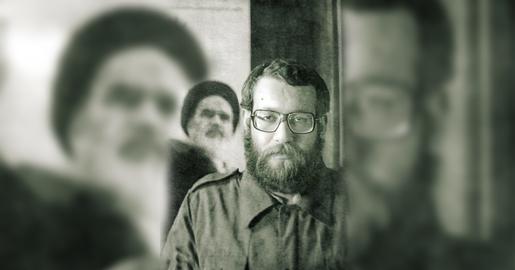
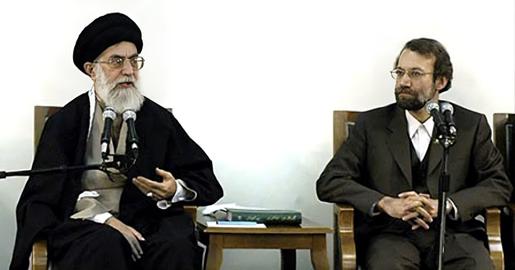


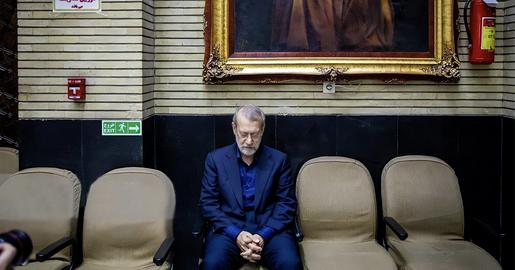
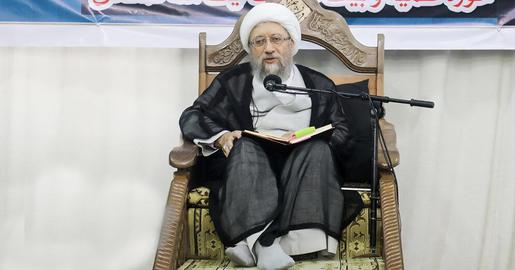










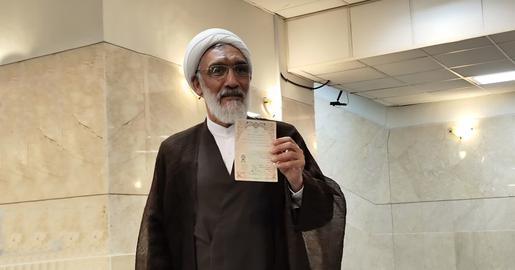
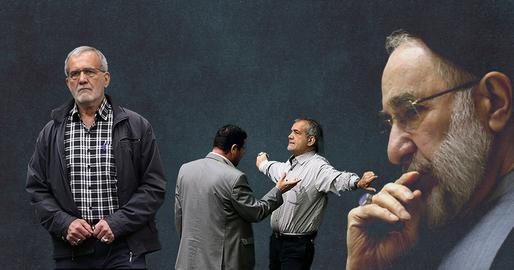







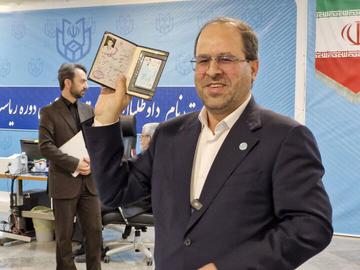
comments